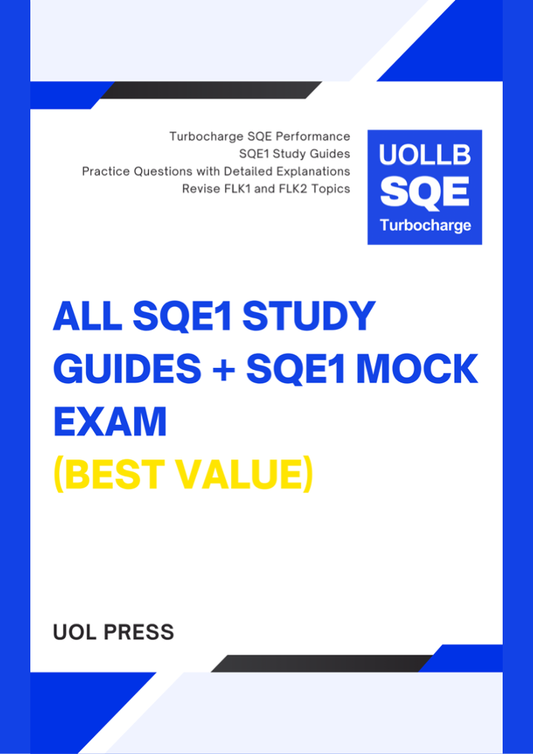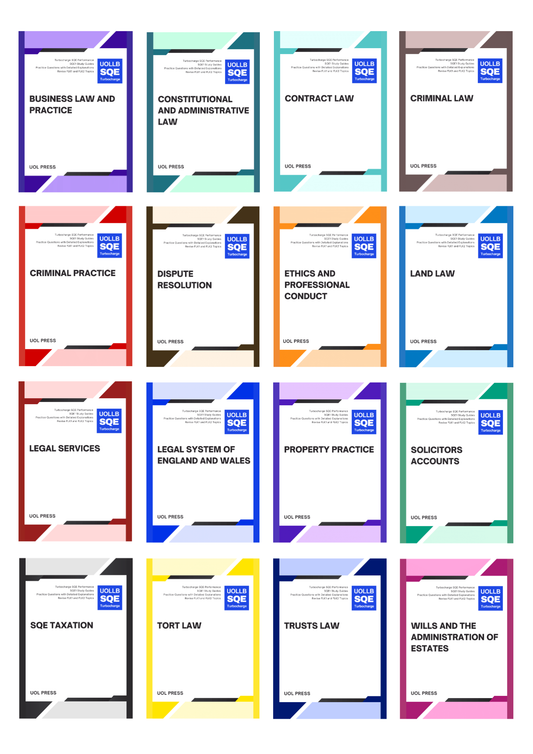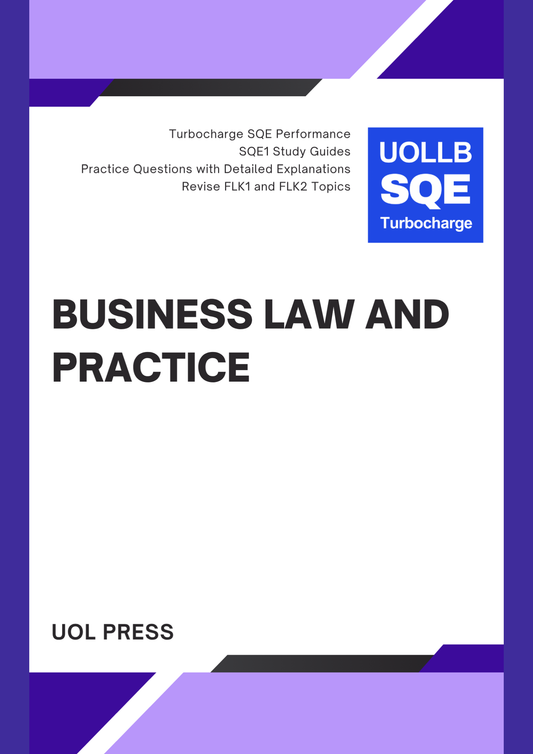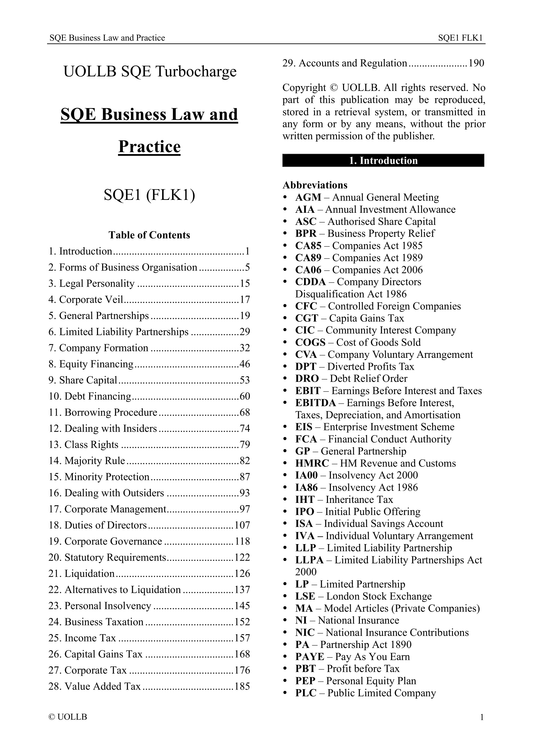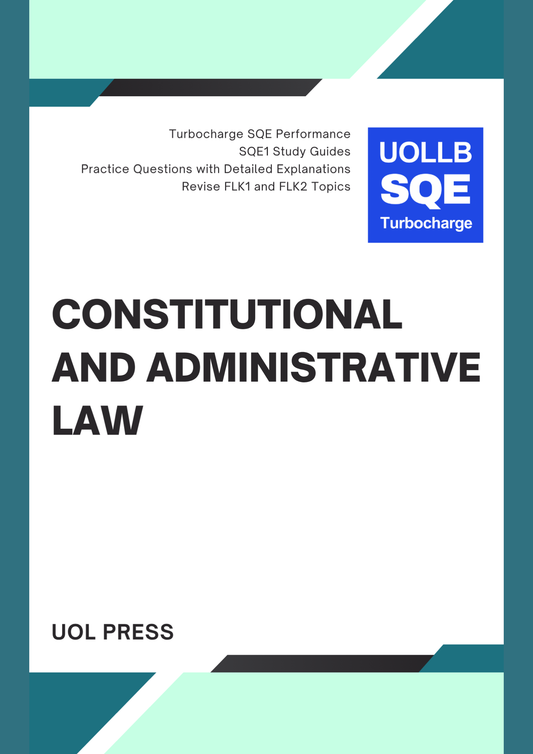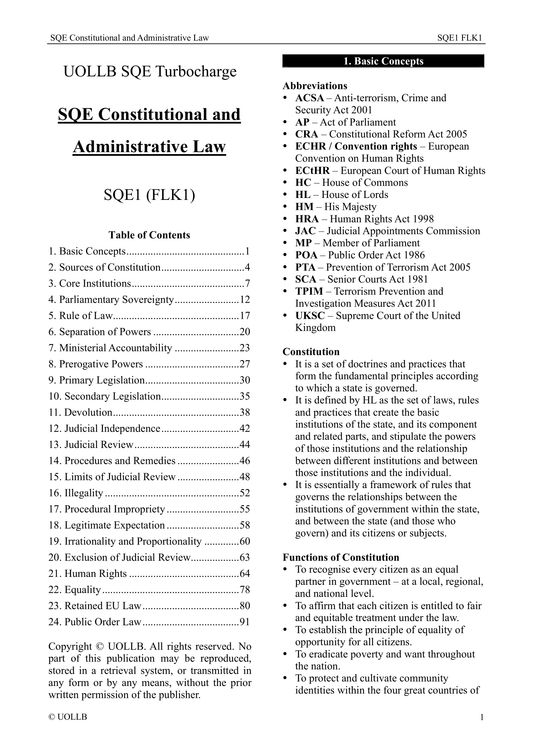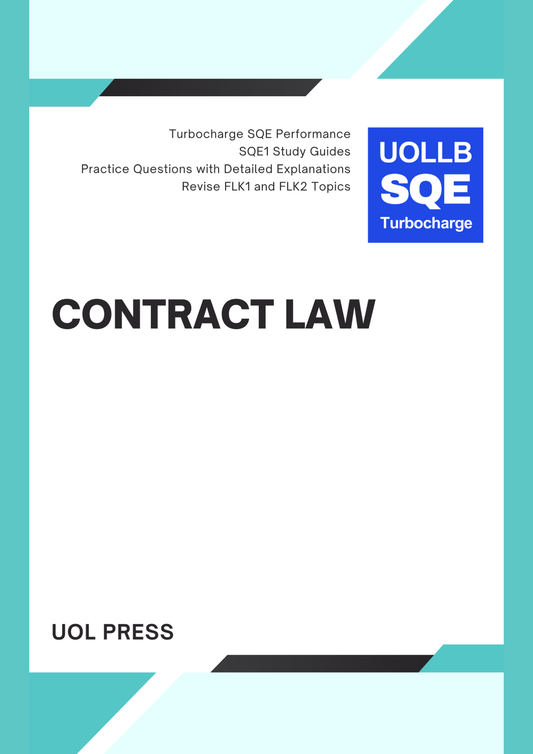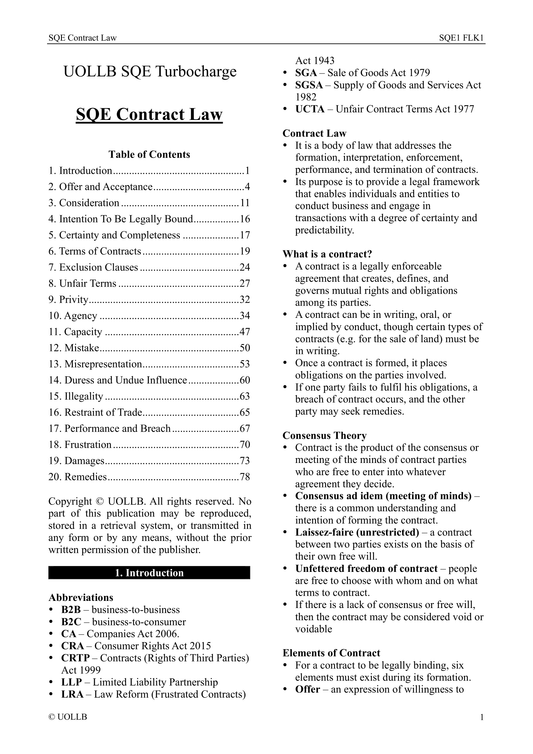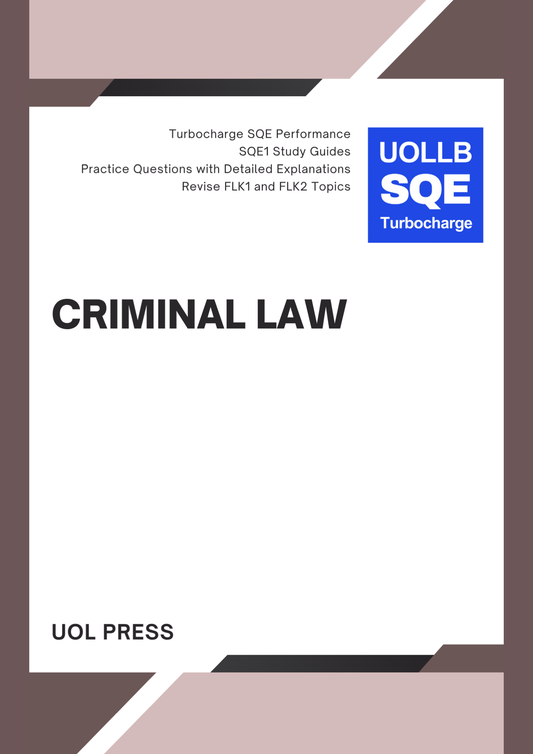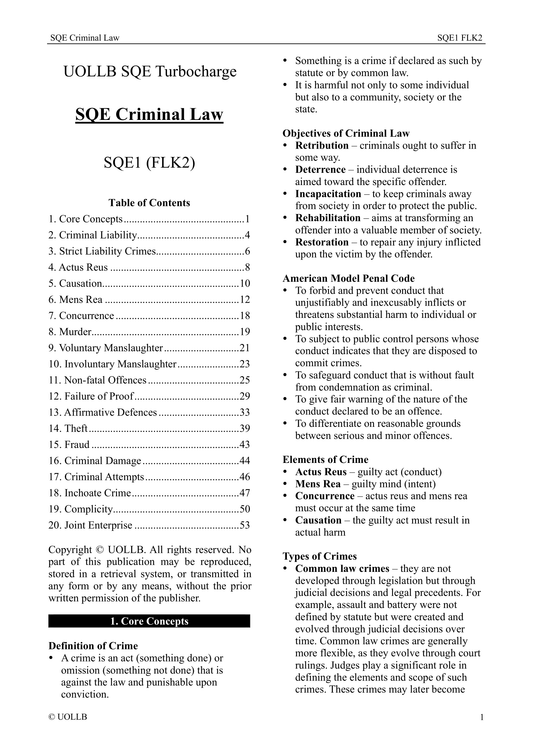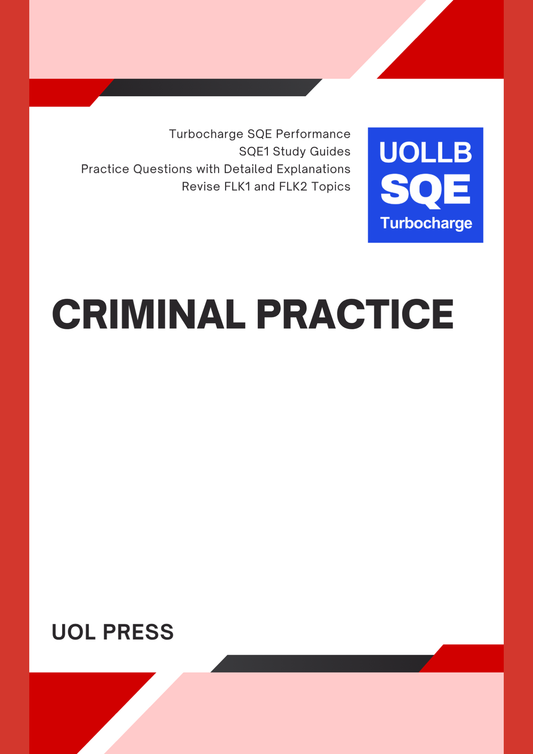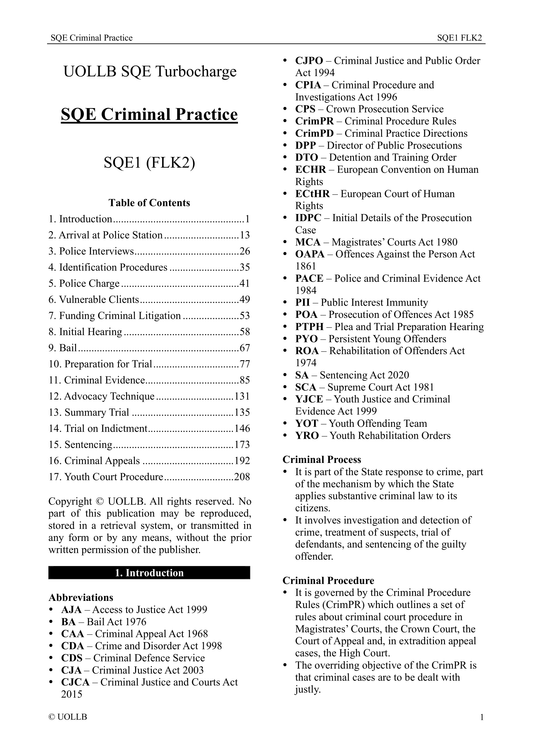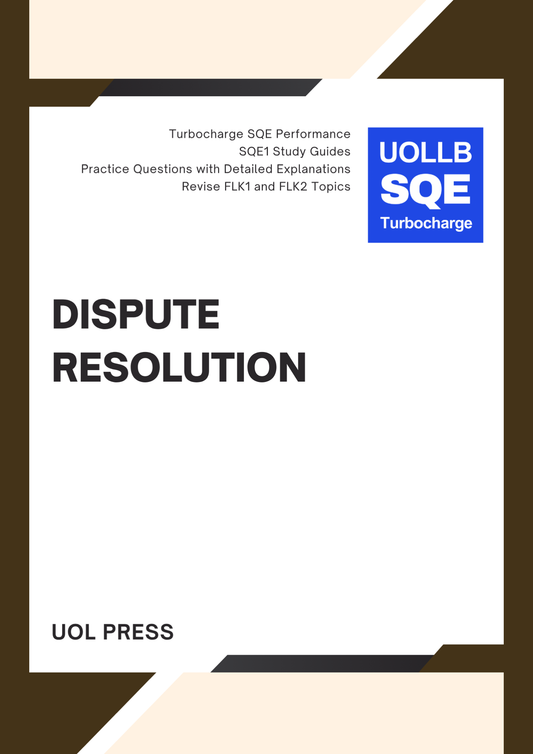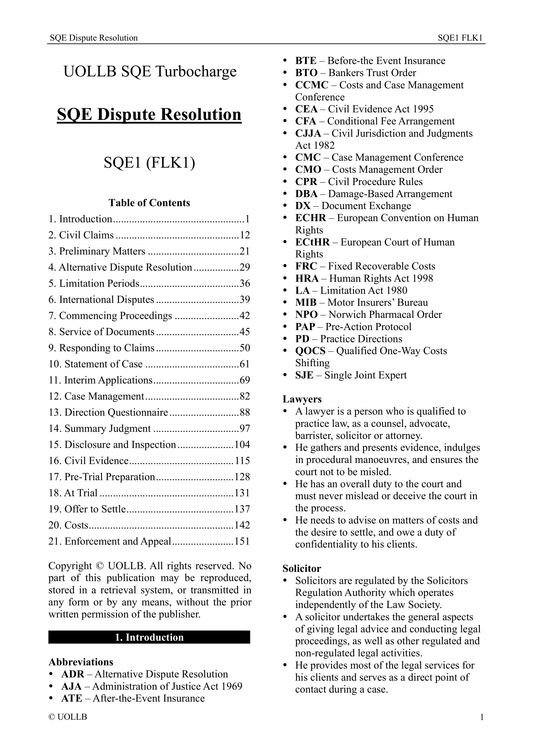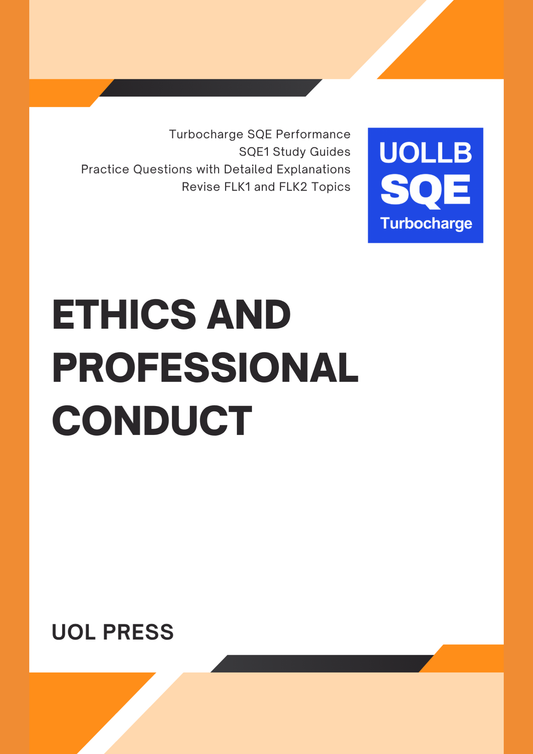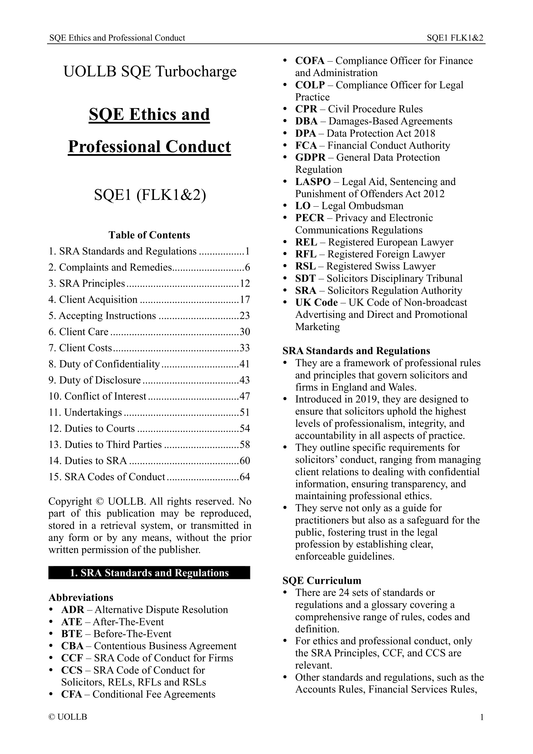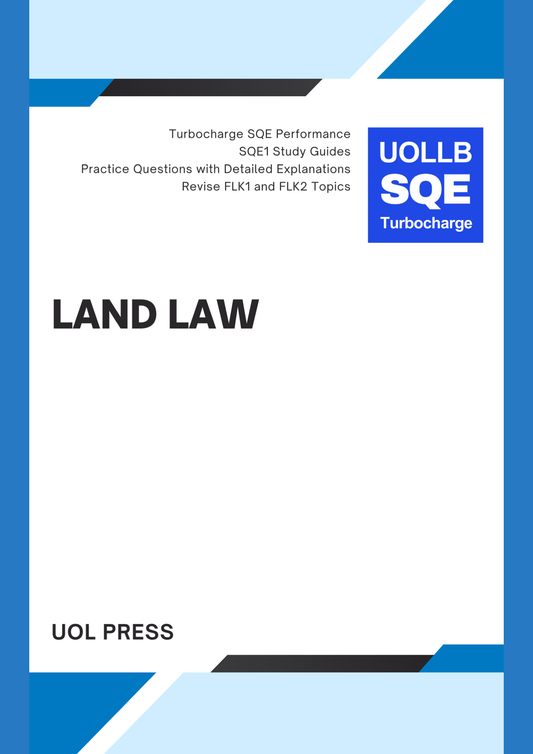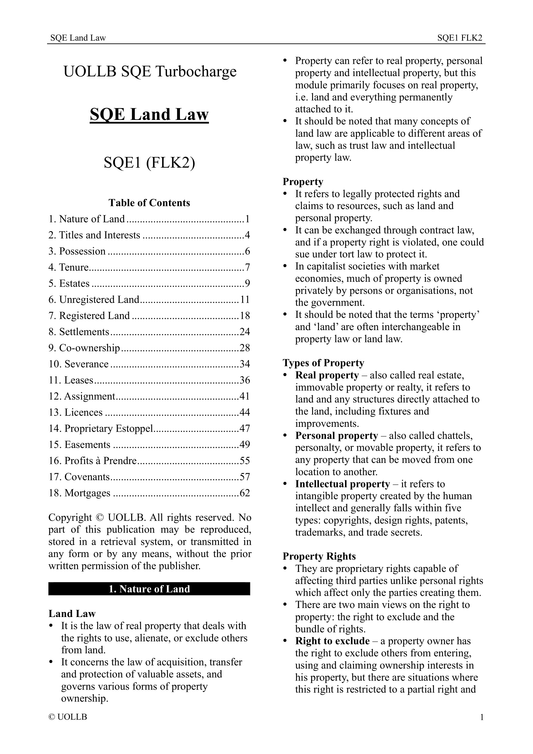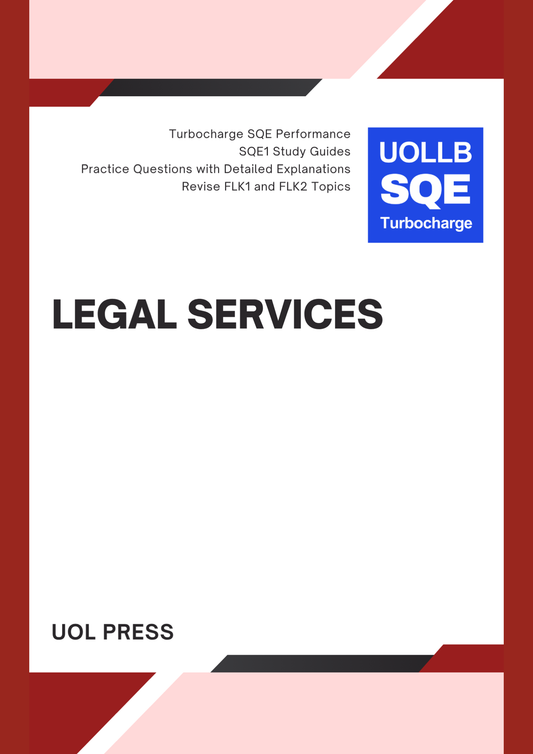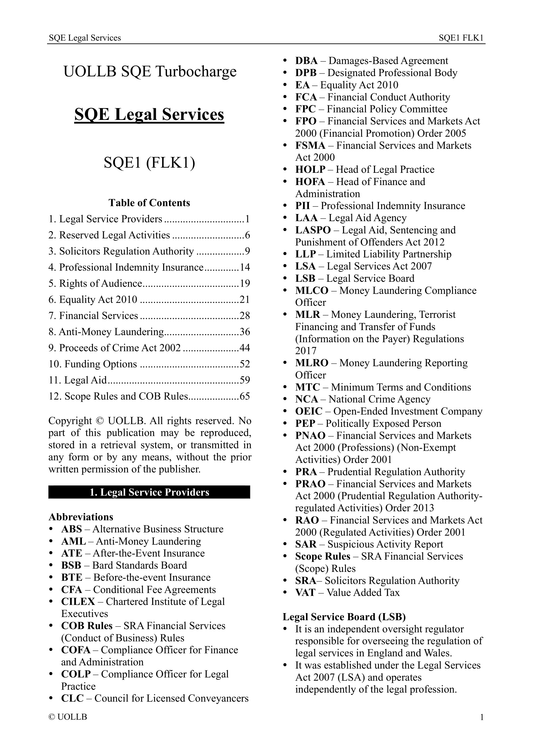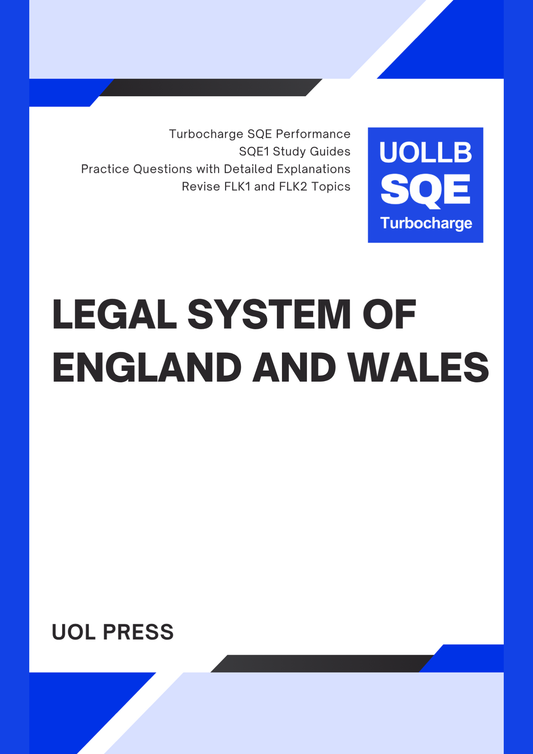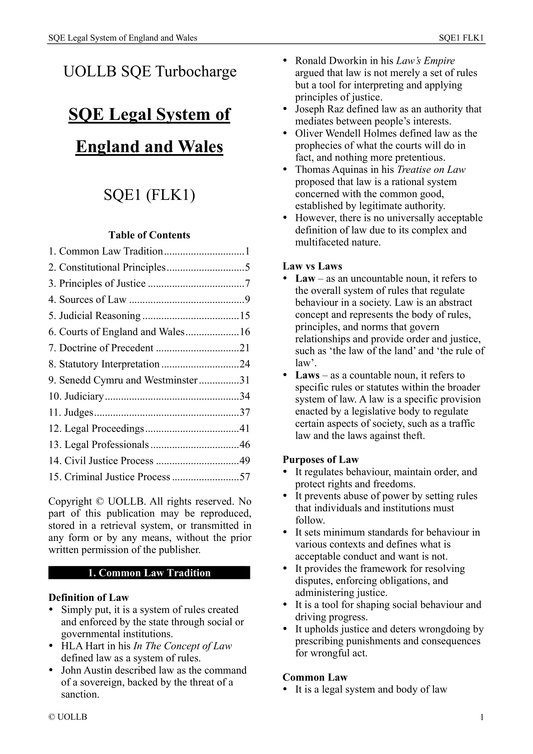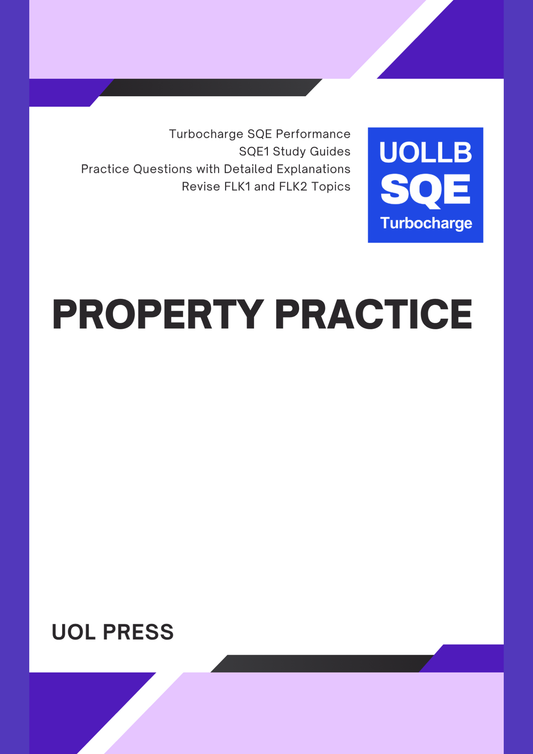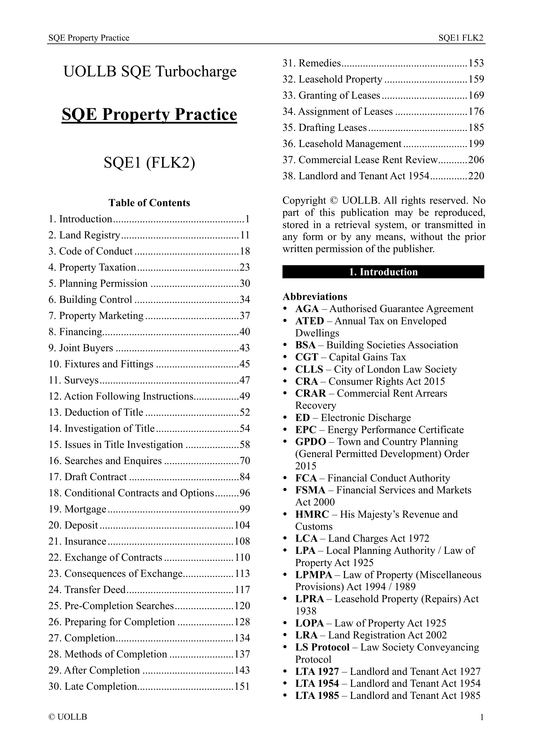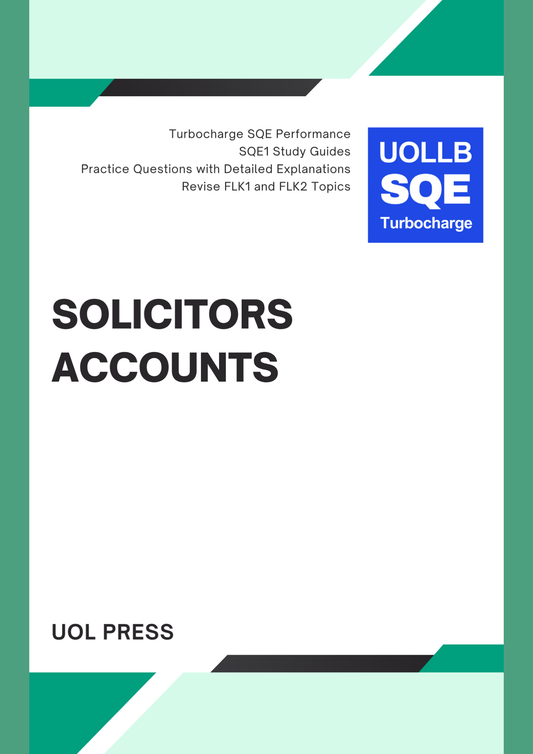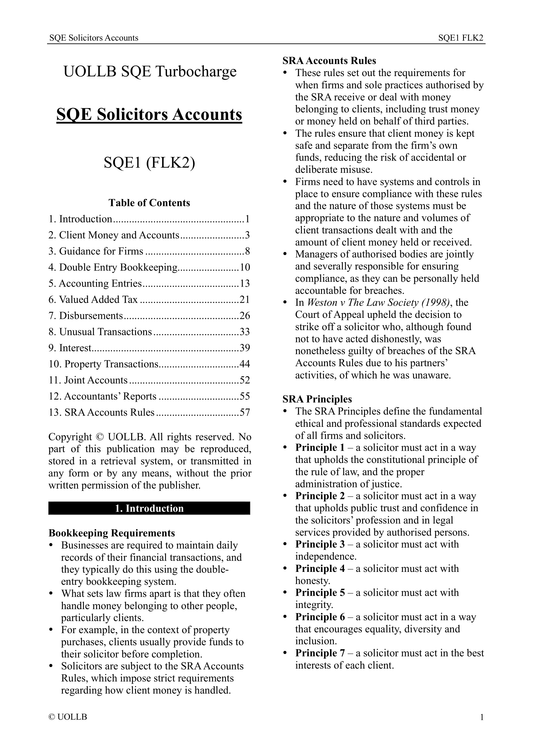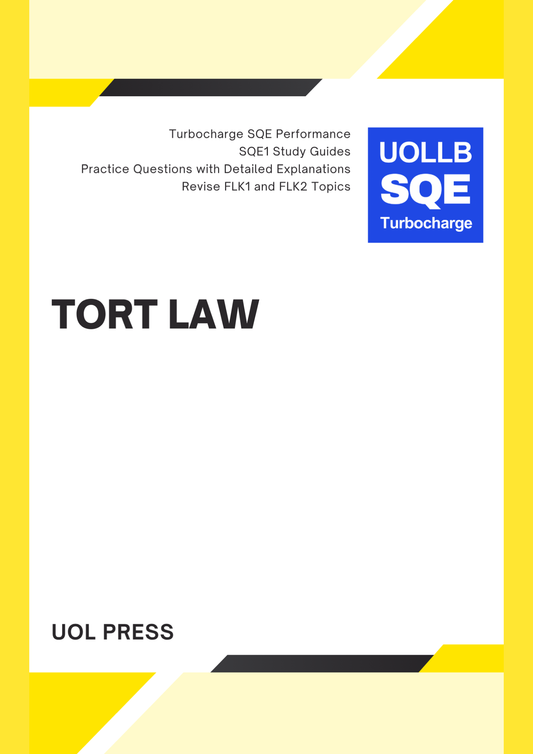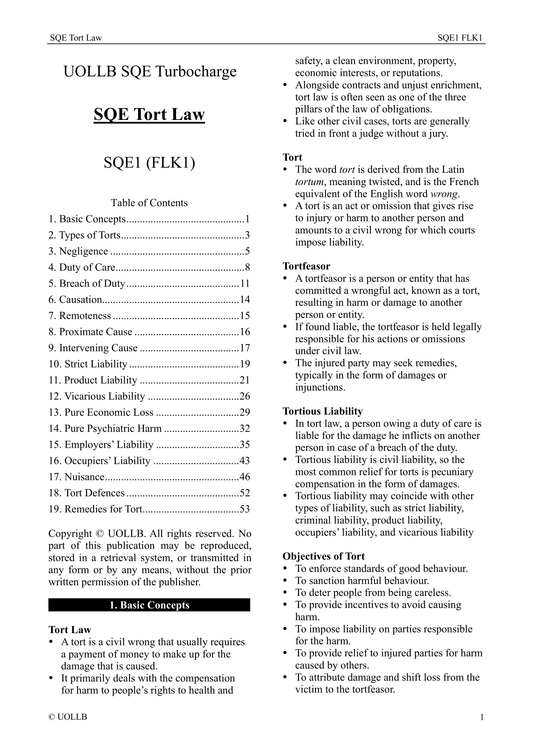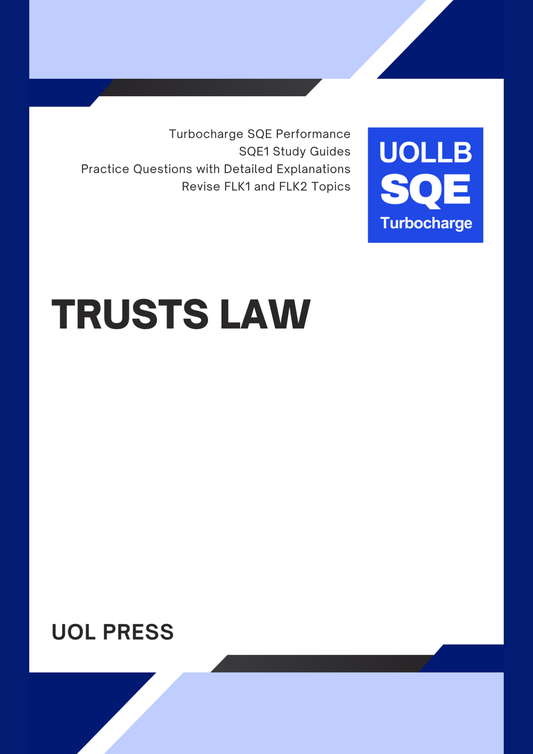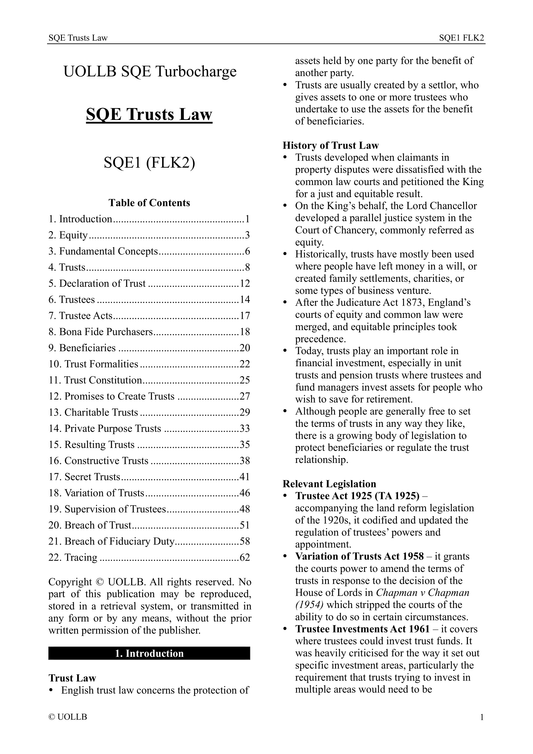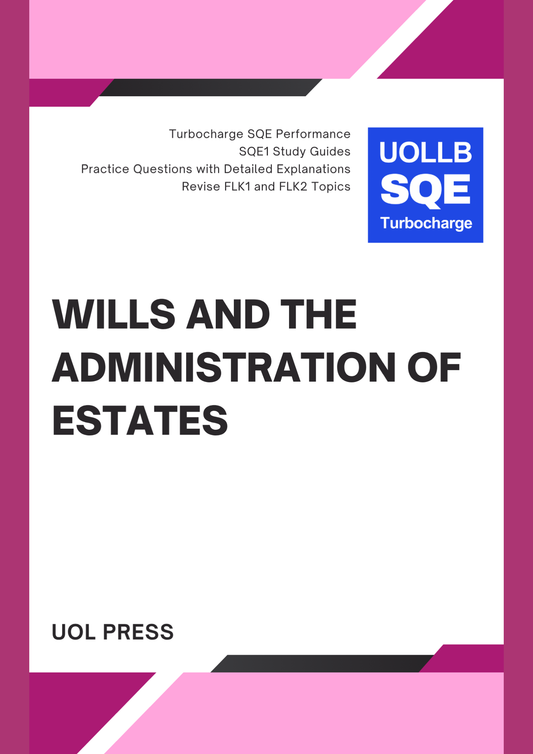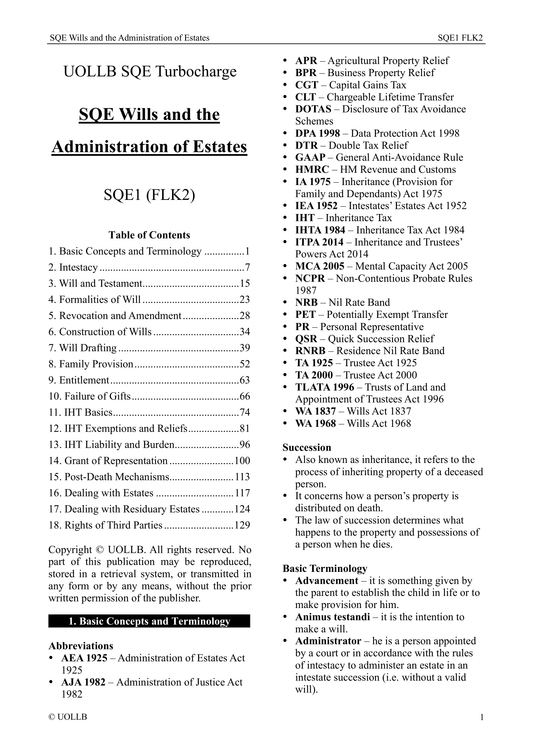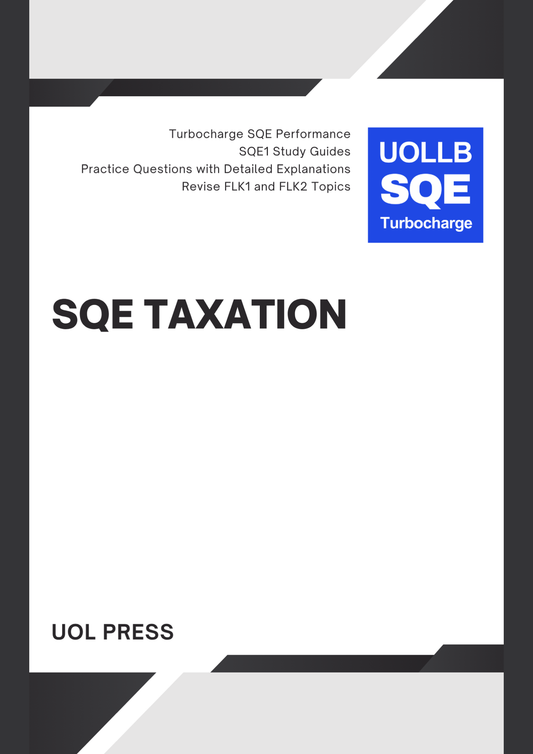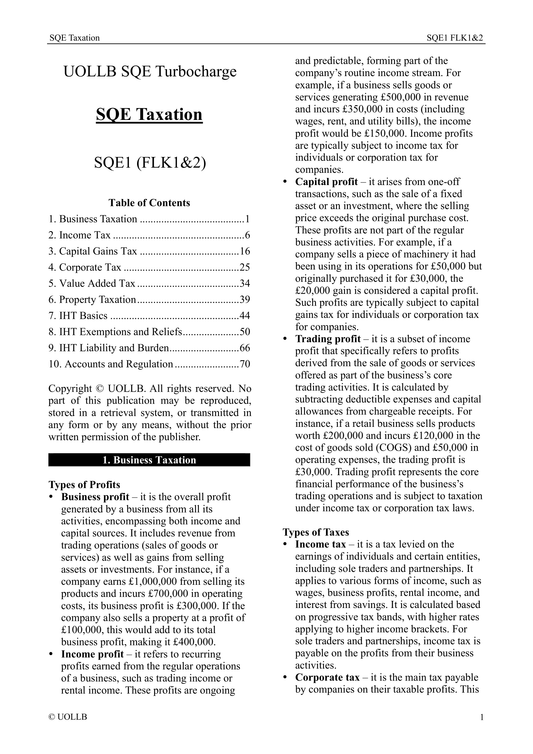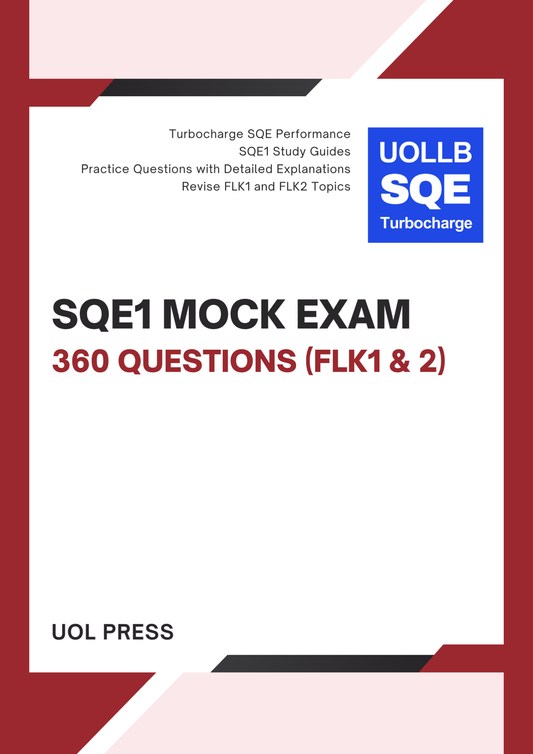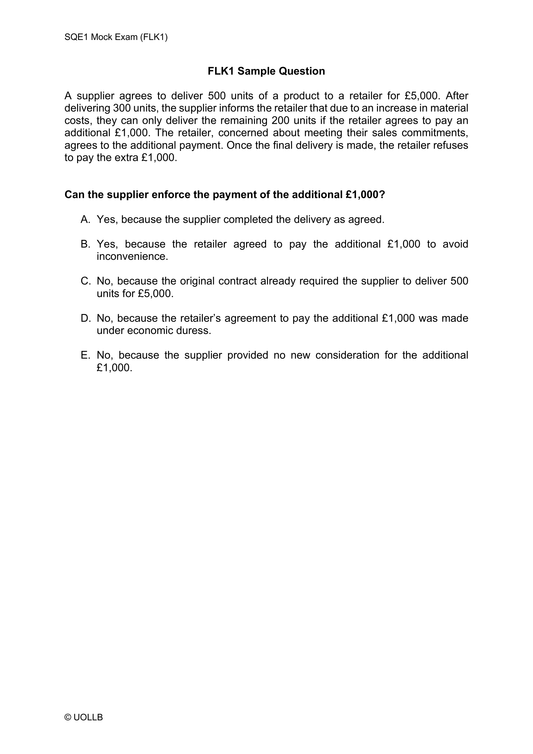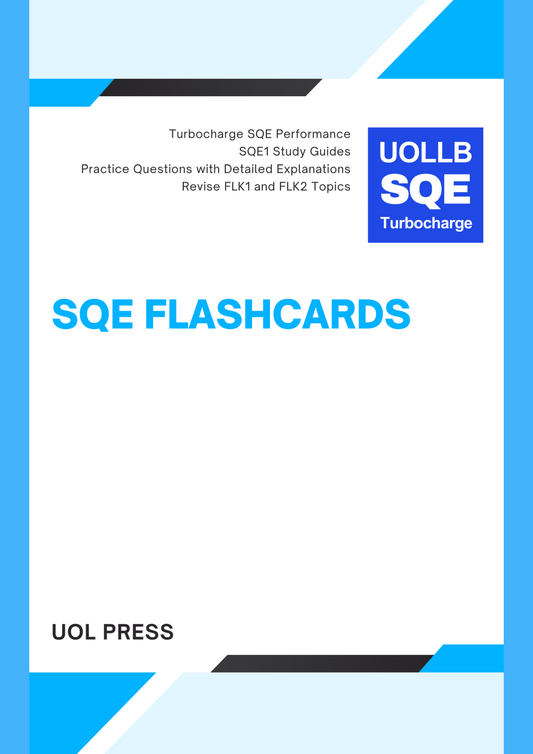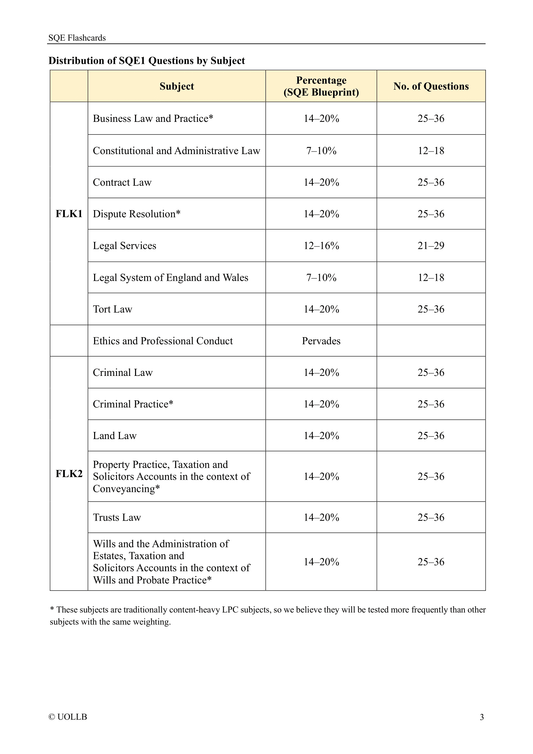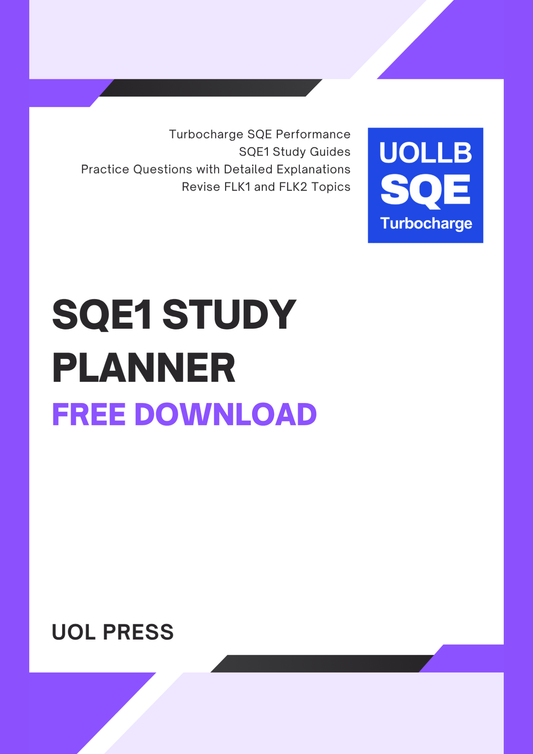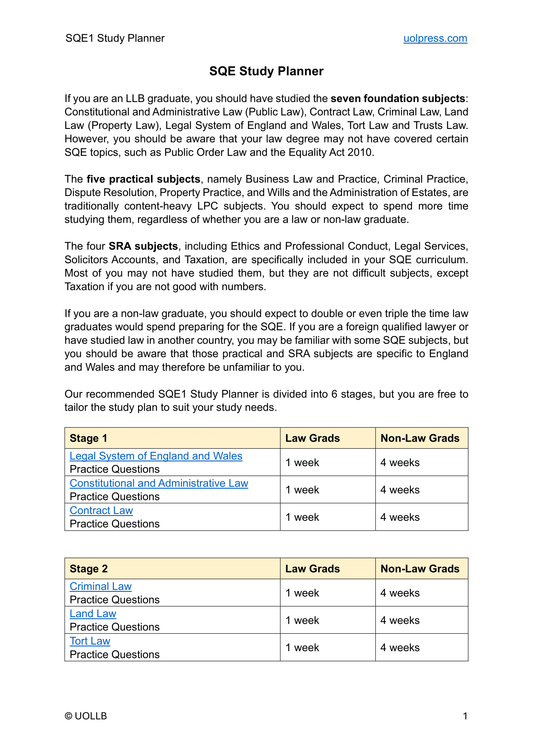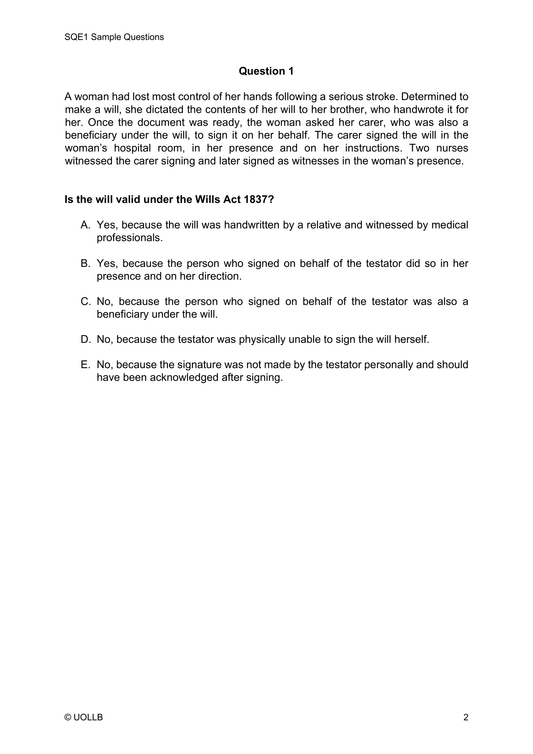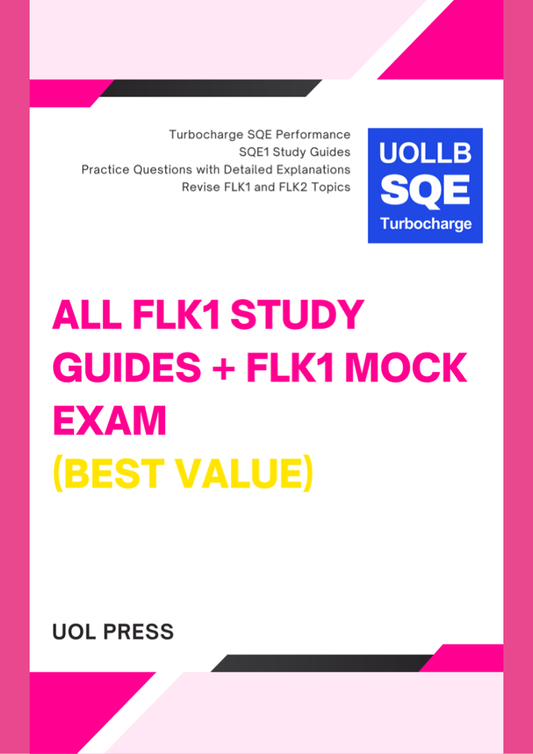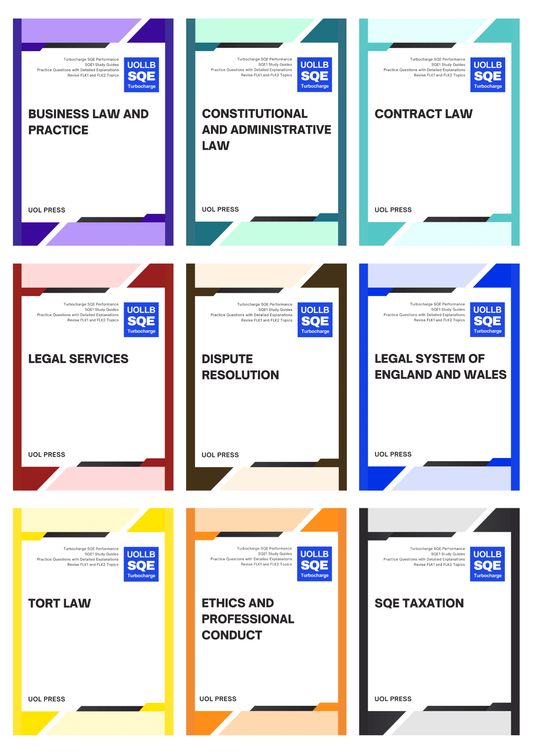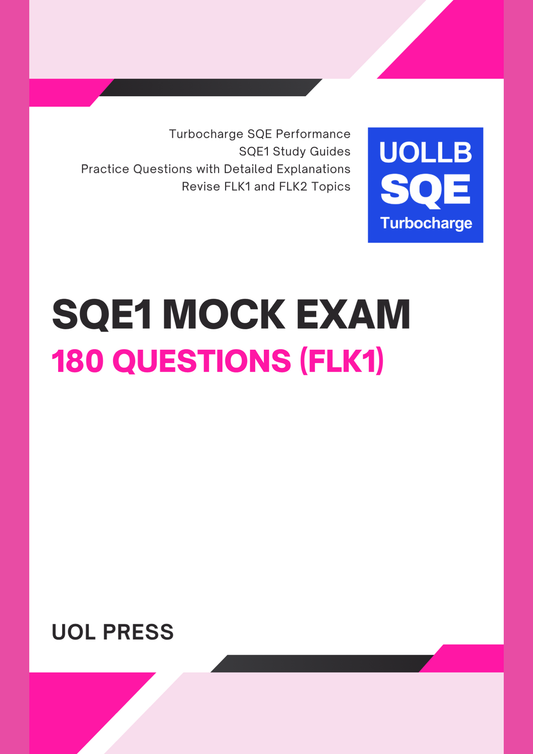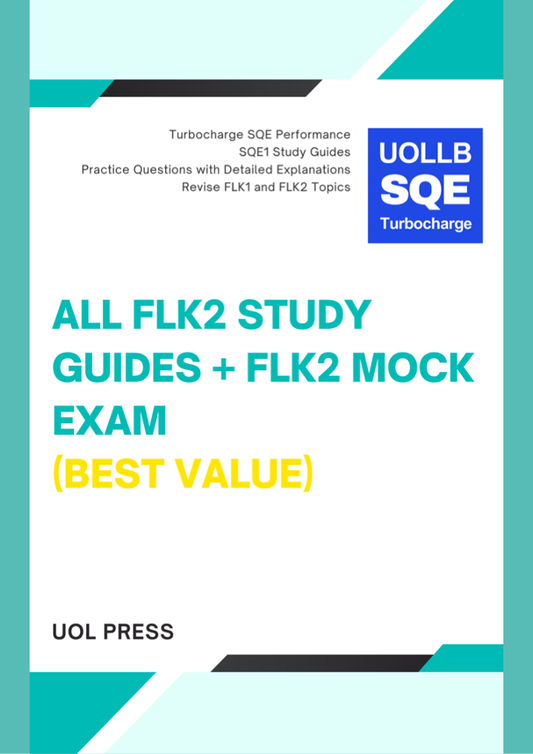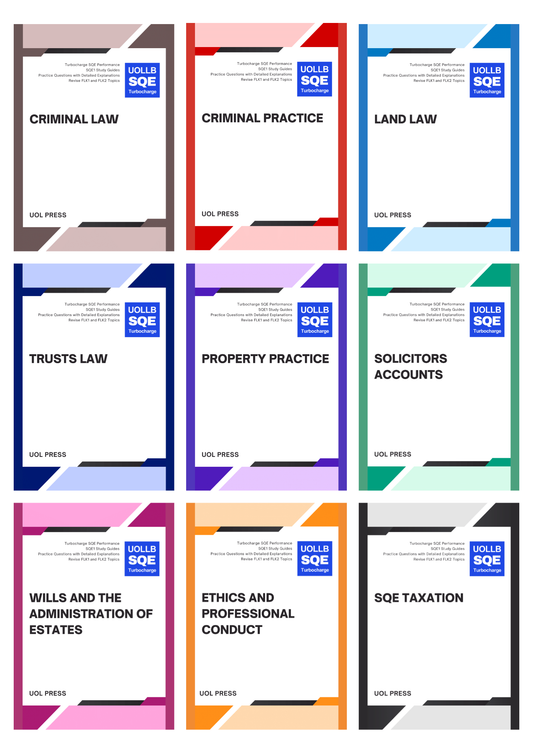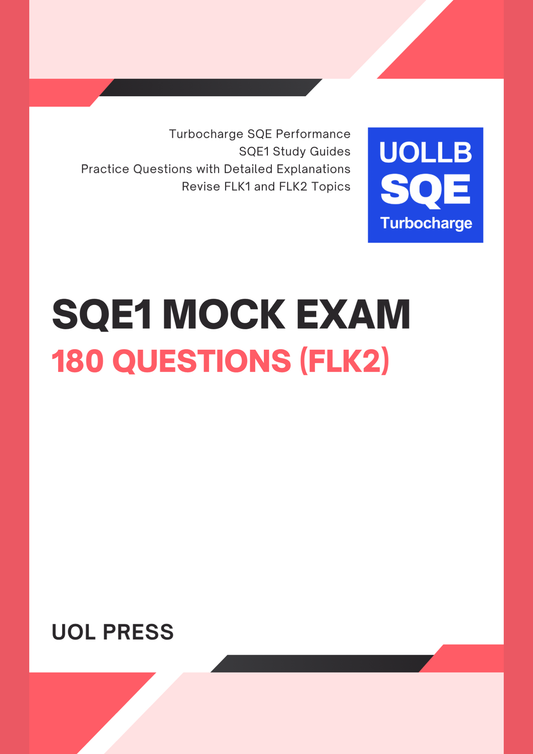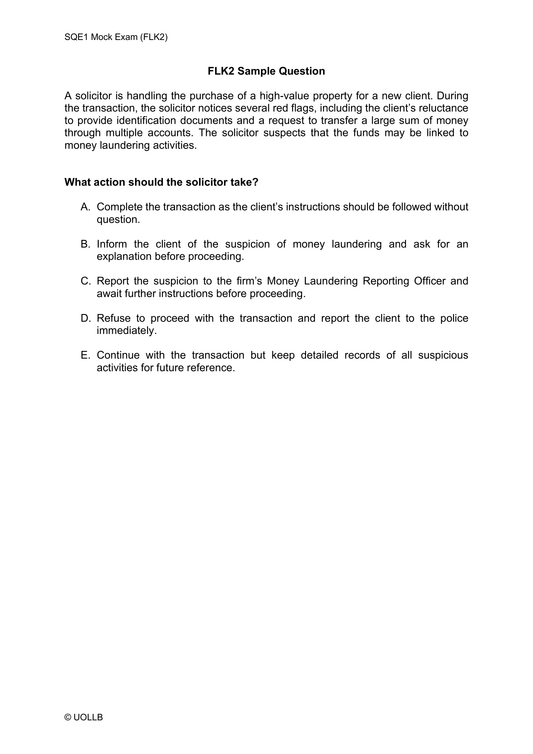Qualifying Work Experience (QWE)
Share
If you aim to qualify as solicitors in England and Wales, completing two years of full-time Qualifying Work Experience (QWE) is a fundamental requirement under the Solicitors Qualifying Examination (SQE) pathway. QWE provides aspiring solicitors with practical experience, allowing you to work directly within legal environments, develop professional skills, and apply theoretical knowledge in real-world scenarios. It also serves as an alternative pathway for those with the Legal Practice Course (LPC) who wish to complete your training by passing SQE2 instead of securing a traditional training contract.
What is Qualifying Work Experience?
QWE is a structured period of work that introduces aspiring solicitors to the core competencies required to practice law. Over a period equivalent to two years of full-time work (which can also be completed part-time), you must engage in practical legal work, applying legal knowledge and developing skills under the supervision of an experienced solicitor or qualified legal professional.
QWE is designed to be flexible, allowing you to accumulate your experience across multiple placements and in various legal settings, including law firms, legal clinics, in-house legal departments, and even in some charitable organisations. This adaptability makes QWE accessible to a diverse range of candidates, accommodating those who may not have traditional legal backgrounds but who aspire to qualify as solicitors.
Purpose and Benefits of QWE
The primary purpose of QWE is to help you develop the competencies outlined in the Statement of Solicitor Competence, which reflects the skills, knowledge, and behaviours expected of a newly qualified solicitor. Through QWE, you gain hands-on experience, which includes client interaction, case handling, legal research, and the practical application of law. This immersive learning helps you build the confidence and professional judgment needed for effective legal practice.
Additionally, QWE provides an opportunity for you to showcase your skills to potential employers, bridging the gap between theoretical knowledge and practical application. It also allows aspiring solicitors to gain exposure to different areas of law and workplace cultures, helping you refine your professional interests and career goals.
Flexibility and Structure of QWE
One of the standout features of QWE is its flexibility. You are permitted to complete your two years of work experience across up to four different placements, which can include a variety of legal environments:
For LPC Graduates: Using QWE as a Path to Qualification
Graduates of the Legal Practice Course (LPC) also benefit from the SQE's flexibility, as QWE combined with passing the SQE2 exam can serve as an alternative to a traditional training contract. This opens up opportunities for LPC graduates who may find it challenging to secure a training contract, enabling them to qualify by fulfilling the SQE's requirements. In this case, LPC graduates complete their QWE in place of the recognised training period, building toward qualification by meeting the same competency standards expected of SQE candidates.
Exemptions and Alternatives for Qualified Lawyers
QWE requirements do not apply to individuals who are already qualified lawyers in other jurisdictions. Qualified foreign lawyers, for instance, may have a modified pathway for qualifying as solicitors in England and Wales based on their existing credentials. These candidates can often apply for exemptions based on their previous experience and qualifications, allowing them to bypass some or all of the QWE requirements. However, they must still pass the SQE assessments to qualify as solicitors unless granted specific exemptions.
The Role of the Solicitors Regulation Authority (SRA) in QWE
The SRA governs the QWE process, setting the standards and guidelines to ensure that the work experience obtained by you is relevant, supervised, and meets the competency requirements. Supervisors must confirm that you have completed your QWE appropriately, and while the SRA does not require you to submit a detailed account of your QWE, it does require formal sign-off by the supervisor(s).
In certain cases, you may be asked to demonstrate your QWE experience to the SRA if further verification is necessary. This may include providing details of the legal tasks you completed, the skills they developed, and the competencies you achieved during your QWE placements.
Why QWE Matters?
QWE is more than a formality in the SQE pathway, as it is a vital component of professional development. By completing QWE, you build a foundation of practical skills that complement the knowledge gained in your legal studies and SQE assessments. Through client engagement, case analysis, and exposure to real-life legal challenges, you not only deepen your understanding of the law but also cultivate the critical thinking and problem-solving abilities essential to effective legal practice.
For aspiring solicitors, QWE provides a chance to begin shaping your professional identity and reputation. It allows you to forge professional connections, gain insights into different areas of law, and, in many cases, secure valuable references and recommendations from your supervisors. As a stepping stone toward qualification, QWE equips you with the readiness and confidence you need to thrive as a newly qualified solicitor in England and Wales.
What is Qualifying Work Experience?
QWE is a structured period of work that introduces aspiring solicitors to the core competencies required to practice law. Over a period equivalent to two years of full-time work (which can also be completed part-time), you must engage in practical legal work, applying legal knowledge and developing skills under the supervision of an experienced solicitor or qualified legal professional.
QWE is designed to be flexible, allowing you to accumulate your experience across multiple placements and in various legal settings, including law firms, legal clinics, in-house legal departments, and even in some charitable organisations. This adaptability makes QWE accessible to a diverse range of candidates, accommodating those who may not have traditional legal backgrounds but who aspire to qualify as solicitors.
Purpose and Benefits of QWE
The primary purpose of QWE is to help you develop the competencies outlined in the Statement of Solicitor Competence, which reflects the skills, knowledge, and behaviours expected of a newly qualified solicitor. Through QWE, you gain hands-on experience, which includes client interaction, case handling, legal research, and the practical application of law. This immersive learning helps you build the confidence and professional judgment needed for effective legal practice.
Additionally, QWE provides an opportunity for you to showcase your skills to potential employers, bridging the gap between theoretical knowledge and practical application. It also allows aspiring solicitors to gain exposure to different areas of law and workplace cultures, helping you refine your professional interests and career goals.
Flexibility and Structure of QWE
One of the standout features of QWE is its flexibility. You are permitted to complete your two years of work experience across up to four different placements, which can include a variety of legal environments:
- Law Firms: Traditional law firm settings provide exposure to client cases, legal documentation, and team collaboration.
- In-house Legal Departments: Working within a company's legal department offers insight into corporate legal matters, compliance, and regulatory issues.
- Legal Clinics: These environments allow you to work closely with clients who may not have access to legal representation, honing interpersonal and problem-solving skills.
-
Charitable or Voluntary Organisations: Voluntary legal work, often within charities, introduces you to legal work in public interest and community-focused legal services.
For LPC Graduates: Using QWE as a Path to Qualification
Graduates of the Legal Practice Course (LPC) also benefit from the SQE's flexibility, as QWE combined with passing the SQE2 exam can serve as an alternative to a traditional training contract. This opens up opportunities for LPC graduates who may find it challenging to secure a training contract, enabling them to qualify by fulfilling the SQE's requirements. In this case, LPC graduates complete their QWE in place of the recognised training period, building toward qualification by meeting the same competency standards expected of SQE candidates.
Exemptions and Alternatives for Qualified Lawyers
QWE requirements do not apply to individuals who are already qualified lawyers in other jurisdictions. Qualified foreign lawyers, for instance, may have a modified pathway for qualifying as solicitors in England and Wales based on their existing credentials. These candidates can often apply for exemptions based on their previous experience and qualifications, allowing them to bypass some or all of the QWE requirements. However, they must still pass the SQE assessments to qualify as solicitors unless granted specific exemptions.
The Role of the Solicitors Regulation Authority (SRA) in QWE
The SRA governs the QWE process, setting the standards and guidelines to ensure that the work experience obtained by you is relevant, supervised, and meets the competency requirements. Supervisors must confirm that you have completed your QWE appropriately, and while the SRA does not require you to submit a detailed account of your QWE, it does require formal sign-off by the supervisor(s).
In certain cases, you may be asked to demonstrate your QWE experience to the SRA if further verification is necessary. This may include providing details of the legal tasks you completed, the skills they developed, and the competencies you achieved during your QWE placements.
Why QWE Matters?
QWE is more than a formality in the SQE pathway, as it is a vital component of professional development. By completing QWE, you build a foundation of practical skills that complement the knowledge gained in your legal studies and SQE assessments. Through client engagement, case analysis, and exposure to real-life legal challenges, you not only deepen your understanding of the law but also cultivate the critical thinking and problem-solving abilities essential to effective legal practice.
For aspiring solicitors, QWE provides a chance to begin shaping your professional identity and reputation. It allows you to forge professional connections, gain insights into different areas of law, and, in many cases, secure valuable references and recommendations from your supervisors. As a stepping stone toward qualification, QWE equips you with the readiness and confidence you need to thrive as a newly qualified solicitor in England and Wales.
